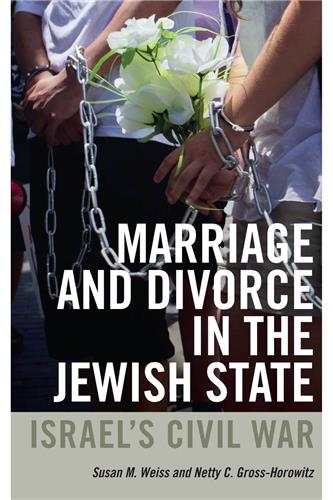Israel currently has two recognized systems of law operating side by side: civil and religious. Israeli religious courts possess the exclusive right to conduct and terminate marriages. There is no civil marriage or divorce in Israel, irrespective of one’s religious inclinations. All Muslims must marry and divorce in accordance with shariya laws, all Catholics in accordance with canon law, and all Jews in accordance with Torah law (halakha). The interpretation and implementation of Torah law is in the hands of the Orthodox religious establishment, the only stream of Judaism that enjoys legal recognition in Israel. The rabbinic courts strenuously oppose any changes to this so-called status quo arrangement between religious and secular authorities. In fact, religious courts in Israel are currently pressing for expanded jurisdiction beyond personal status, stressing their importance to Israel’s growing religious community. This book shows how religious courts, based on centuries-old patriarchal law, undermine the full civil and human rights of Jewish women in Israel. Making a broad argument for civil marriage and divorce in Israel, the authors also emphasize that religious marriages and divorces, when they do occur, must benefit from legislation that makes divorce easier to obtain. Making this issue their focal point, they speak to a larger question: Is Israel a democracy or a theocracy?


SUSAN M. WEISS is a matrimonial lawyer, NGO founder, and activist. NETTY C. GROSS-HOROWITZ is a senior writer at the Jerusalem Report.

Founded in 1971, Brandeis University Press is a nonprofit publisher dedicated to publishing innovative, high-quality books for a general audience, as well as scholarship that advances knowledge and promotes dialogue in the humanities, arts, and social sciences around the world.
© Copyright 2024, Brandeis University Press
Brandeis University Press
Goldfarb Library 69-235, MS 046
Brandeis University
415 South Street
Waltham, MA 02453
(781) 736-4547
pressinfo@brandeis.edu

Stay up to date with the newest titles and promotions from Brandeis University Press—while saving 20% on your first purchase.